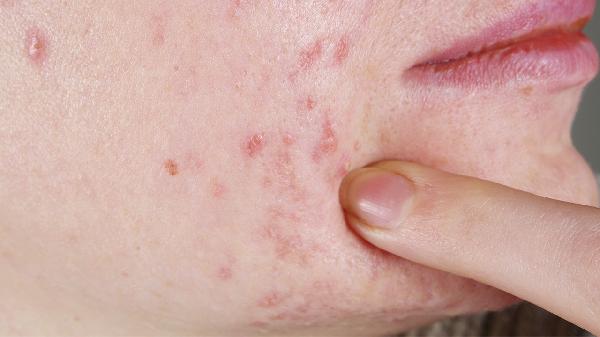Fruits, nature's sweet gift, are supposed to be a bonus for a healthy lifestyle, but sometimes they can become a "little trouble" for our bodies. Have you ever enjoyed a delicious fruit and suddenly felt itchy skin, throat discomfort, or even difficulty breathing? This could be a sign of a fruit allergy. Today, let's talk about those fruits that might cause allergies, so you can enjoy the flavors while avoiding these "sweet traps."

1. Strawberries
Strawberries, those adorable little red fruits, are a favorite for many. However, they are also a common allergen. Strawberries contain a substance called "strawberry protein," which can easily trigger allergic reactions. If you experience symptoms like swollen lips or skin redness after eating strawberries, be cautious.
2. Mangoes
Mangoes, the star of tropical fruits, have won over countless food lovers with their unique aroma and taste. But the skin and flesh of mangoes contain a substance called "urushiol," similar to the components found in poison ivy, which can cause contact dermatitis. For those allergic to mangoes, even contact with the fruit's juice can lead to skin redness and itching.
3. Kiwis
Kiwis, known as the "king of vitamin C," can also trigger allergic reactions due to certain proteins in their flesh. Symptoms of kiwi allergy range from mild lip numbness to severe difficulty breathing. If you feel unwell after eating kiwis, stop immediately and consult a doctor.
4. Pineapples
Pineapples, with their sweet and tangy flavor, are a summer favorite. However, they contain an enzyme called "bromelain," which, while breaking down proteins, can also irritate the mouth and digestive tract, causing allergic reactions. For those allergic to pineapples, symptoms like mouth ulcers or stomach discomfort may occur.
5. Bananas
Bananas, seemingly mild, can also be a culprit for allergies. They contain a substance called "banana protein," which can trigger allergic reactions. Symptoms include oral itching and throat discomfort, and in severe cases, even anaphylactic shock.
6. Peaches
Peaches, sweet and juicy, are a seasonal summer fruit. But their skin and flesh contain a substance called "peach protein," which can cause allergic reactions. Symptoms include skin redness, itching, and difficulty breathing. For those allergic to peaches, even contact with the fruit's juice can trigger a reaction.
7. Apples
Apples, hailed as the "fruit of health," can also cause allergies. They contain a substance called "apple protein," which can trigger allergic reactions. Symptoms include oral itching and throat discomfort. For those allergic to apples, even contact with the fruit's juice can cause a reaction.
8. Citrus Fruits
Citrus fruits like oranges, grapefruits, and lemons, though rich in vitamin C, can also cause allergic reactions due to certain components in their skin and flesh. Symptoms include skin redness, itching, and difficulty breathing. For those allergic to citrus fruits, even contact with the juice can trigger a reaction.
While fruit allergies are not common, they can cause significant discomfort when they occur. Understanding these potentially allergenic fruits can help us better enjoy their flavors while avoiding unnecessary health risks. If you feel unwell after eating a certain fruit, stop immediately and consult a doctor. Remember, health is the greatest asset for enjoying good food.
























